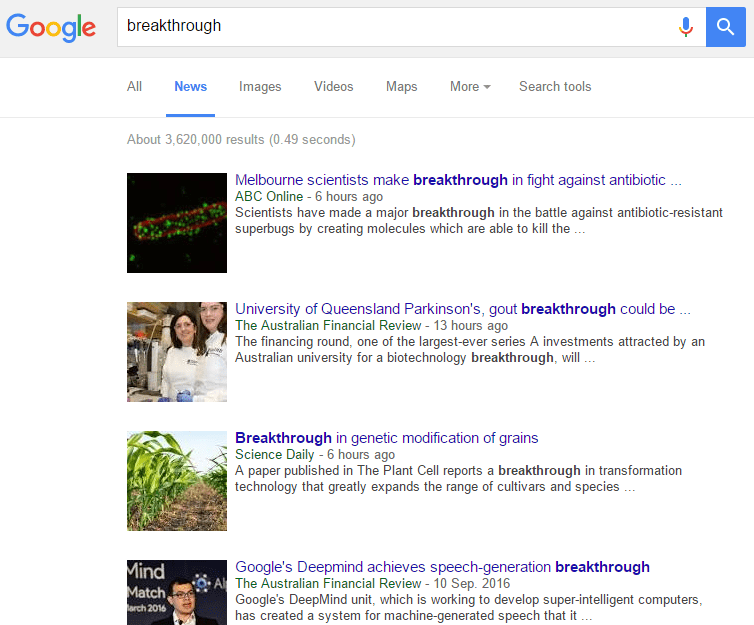We need to find novel and more accurate ways of writing about advances in medicine because not all “breakthroughs” are real medical breakthroughs.
At AMWA 2016 in Auckland, New Zealand, we discussed the difficulties of communicating accurately to a non-technical audience how much evidence there is for health and medical claims.
Professor Thomas Lumley, Professor of Biostatistics at the University of Auckland, gave us some tips on how to write about advances in medicine without framing them in a ‘breakthrough’ context.
Professor Lumley argued that there are limited stories people want to tell about medicine – and therein lies the constant emergence of the breakthrough narrative.

Many web publishers and media outlets only want to talk about research if it is a medical breakthrough.
At the same time, a non-technical general public audience are most engaged by creative stories and narratives that are life-changing, inspiring and empowering.
The challenge for us, as health writers, is to make research appear exciting and significant without overhyping it.
While not all science should be framed as a ‘breakthrough’, not all stories are small advances in medicine, either.
Ultimately, it’s a balance between giving credit where credit is due without sensationalising the evidence – or making it appear more momentous than it actually is.
Extraordinary claims require extraordinary evidence
A breakthrough is not merely a result – or even an exciting result. It’s something that is, as Professor Lumley pointed out, ‘extraordinary’.
Working out whether something is truly a ‘breakthrough’ or not isn’t always easy.
Simply put, a breakthrough should revolutionise the treatment of a condition or disease. Not all advances in medicine do this.
In fact, we’ve written about medical breakthroughs before – and in our article we listed a few recent medical breakthroughs that do have a real benefit for patient care.
In order to determine the significance of the research, you’ll need to read the full journal paper, talk to a few experts for perspective, learn about the body of evidence to date – and take any claims in press releases with a grain of salt.
Most press releases will have quotes from authors like “This is the best news that we have had in our 25 years,” it’s the writer’s job to work out whether this is true or (accidental or less accidental) bias.
Different ways to write about small advances in medicine
So how can we write about a new advancement in medicine without over-hyping the finding? Professor Lumley gave us some advice, and the following tips are taken from one of his slides:
Instead of the ‘breakthrough’ angle, opt for:
- Discovery – the mere fact that something has been uncovered, perhaps something unexpected
- Award – something has happened to support future work on this
- How stuff works – flowing bacteria to help find antibiotics, lasers to measure air pollution
- People – science is a human endeavour
- Crossword – science fits together in unexpected ways.
Other angles could include:
- It’s complicated – why don’t we have an answer for this problem?
- Labs suck – human problems with how science is done
- Conflict of interest – where’s the money
- Research ethics – who’s in the control group.
‘The standard you walk past is the standard you accept,’ Professor Lumley concluded.

